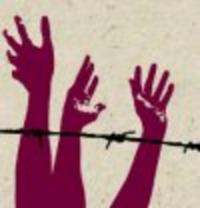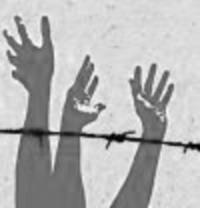Colonel (ret.) Lukáš Polanský
* 1925
-
So we made an arrangement – once, we were digging trenches. The guards were fifty meters far from each other, Hungarians. They were drinking all night so they slept, it was hot. We made an arrangement and drew one of them down into the trenches. We were running for two days as we could – in Ukraine. Those Ukrainians, as we saw them, two of us waited and one went to beg for food. They would give us everything. But we needed to progress in a way they wouldn’t catch us, we controlled ourselves.
-
After the war – on May 9th 1945 it ended – I was still at the artillery, in the army. Then such a situation came up when those who joined the army didn’t know anything about what is an army. So I needed to train them all. And there were such commanders – I said: „You don’t know nothing, am I supposed to do all for you?‘ As a battery commander and such, what they were supposed to do, they didn’t because they didn’t understand. And I said – not this. I said I want to go to Prague – as I served out of Prague in Rokycany. So I fell out with the commander there and he said: „Well no-one sent you to war.“ He said that and I didn’t respond, I kicked his ass.
-
Celé nahrávky
-
Praha, 28.04.2010
(audio)
délka: 45:13
Celé nahrávky jsou k dispozici pouze pro přihlášené uživatele.
Each country sent me the highest award for victory over fascism.
Lukáš Polanský was born in 1925 into a poor family in Subcarpathian Rus, Czechoslovakia. He had five siblings and his mother died when he was ten years old. During his childhood he used to help his father who worked as a lumberjack. Thanks to his great grades he went to grammar school in Chust after finishing elementary school. After the Hungarian occupation in 1939 he was sent to forced labour at a field. He returned home for night and took care of his brothers and sisters. Later he and his two schoolmates were placed into a camp in Ukraine. They decided to escape and succeeded. They walked through Ukraine for over three months with the intention of joining Czechoslovak units. They got to Buzuluk. The weakened Lukáš Polanský was placed to artillery where he was to do calculations. He took part in all of the critical combat in Poland and Slovakia. By the end of the war he also participated on liberation of Prague. He stayed in the army after the war and gradually became colonel. Later he worked at Ministry of Interior.

